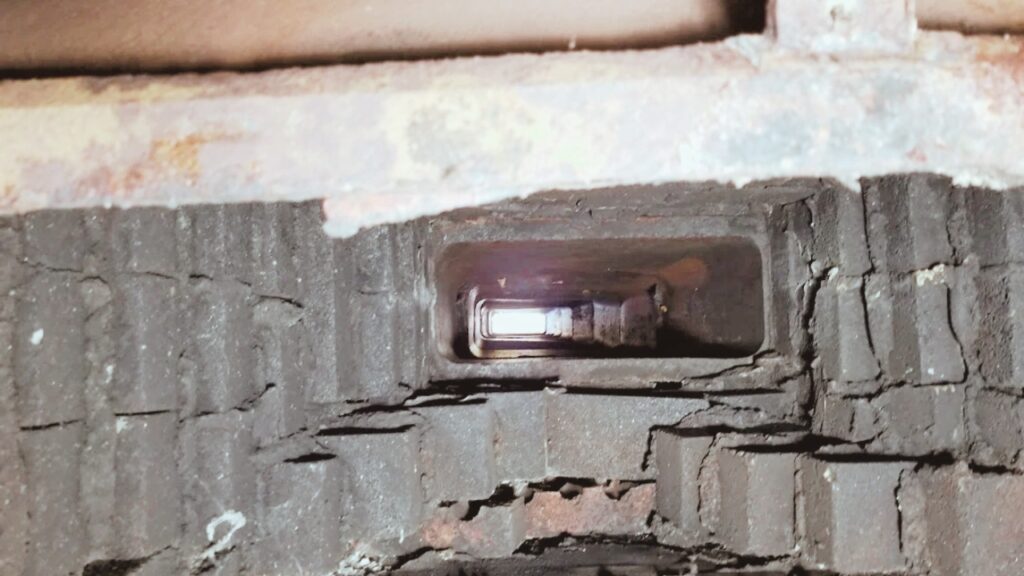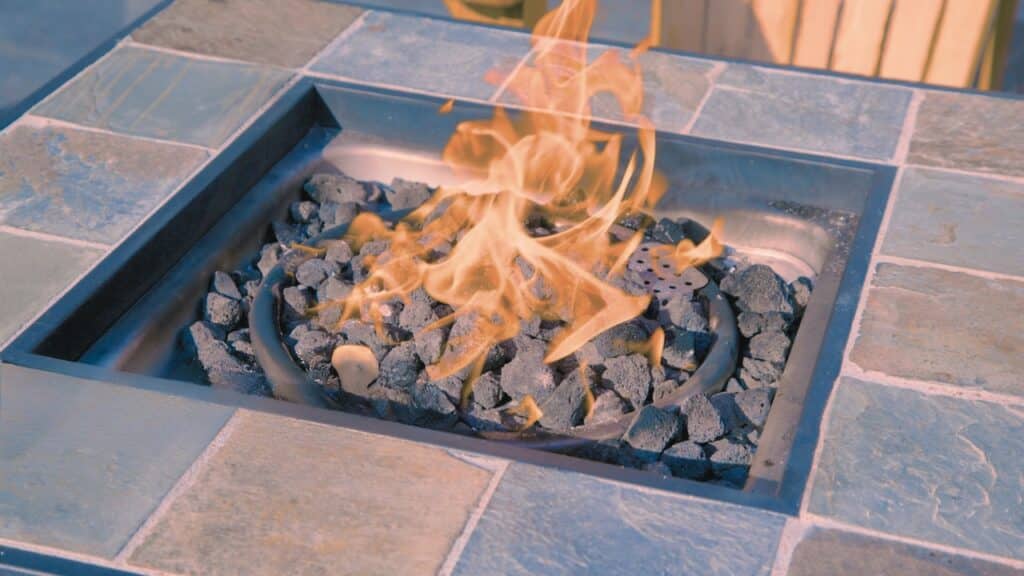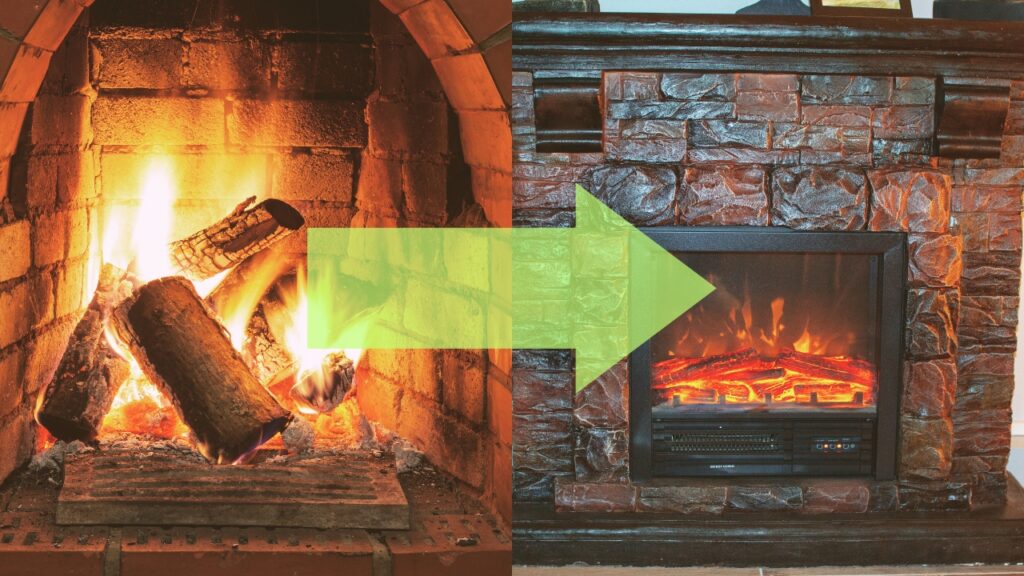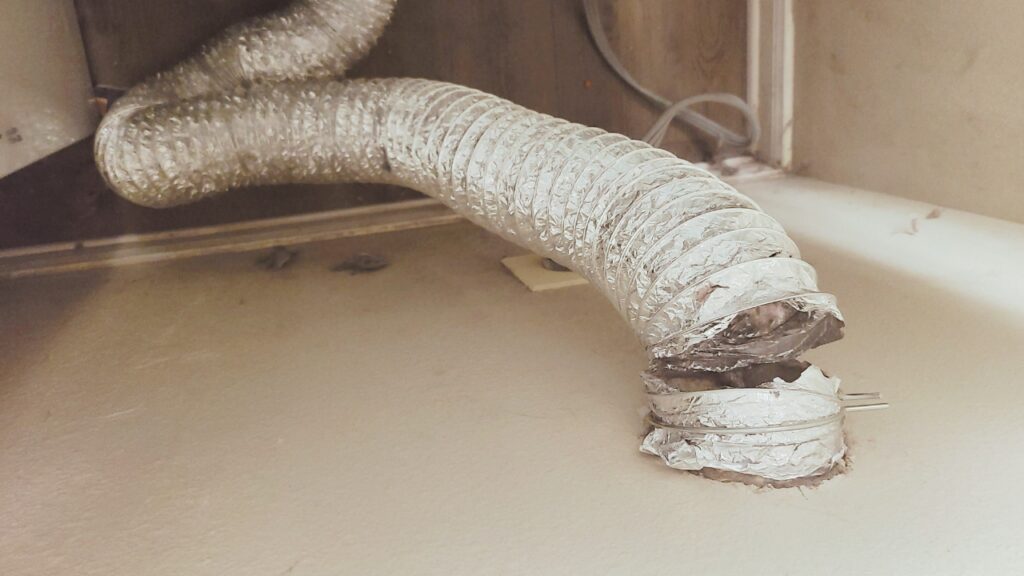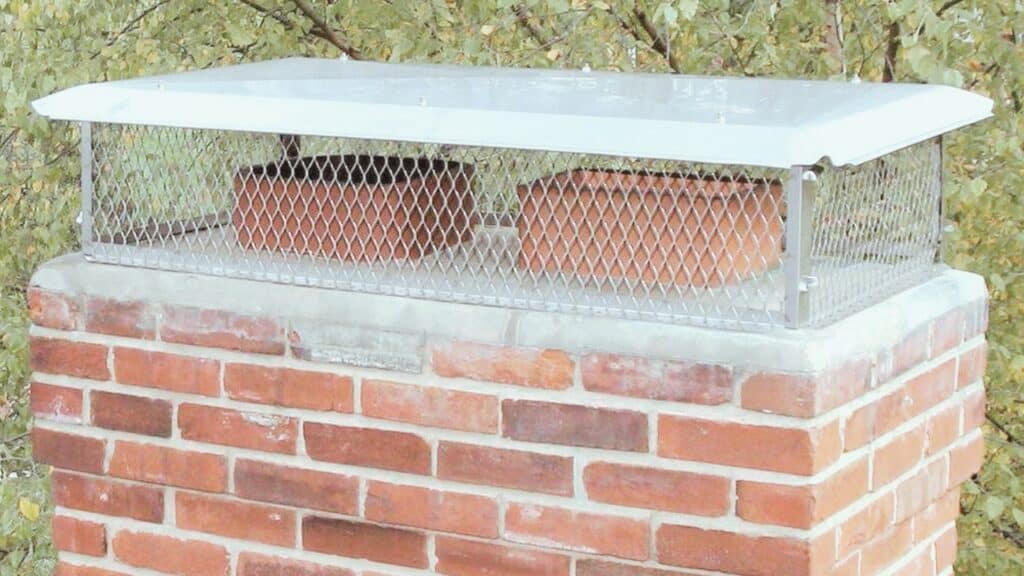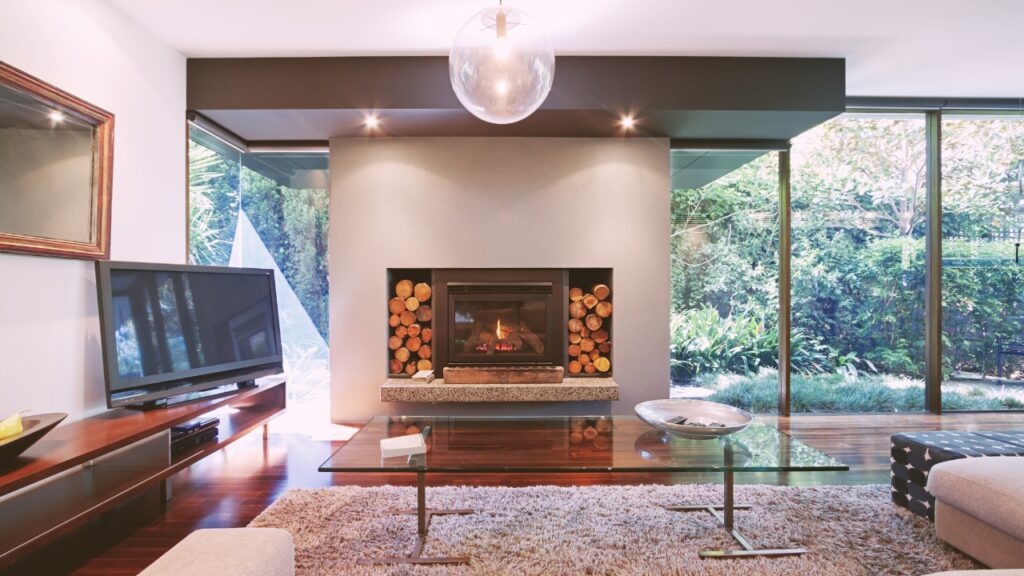As a homeowner, it’s crucial to maintain your fireplace and chimney to operate safely and effectively. Maintaining an adequately working chimney adds aesthetic appeal to your home and helps it function better.
But what should you do when you start to hear chimney noise or strange chimney sounds? The phenomenon known as “chimney noise” is a dangerous situation every homeowner should be aware of.
Various chimney noises indicate different problems. Some chimney sounds are normal and nothing to worry about, while others may tell an issue that needs to be addressed.
In this article, we’ll explore seven typical chimney sounds and what they may indicate so that you can take the necessary steps to fix any problems.
Why is My Chimney Making Noise?
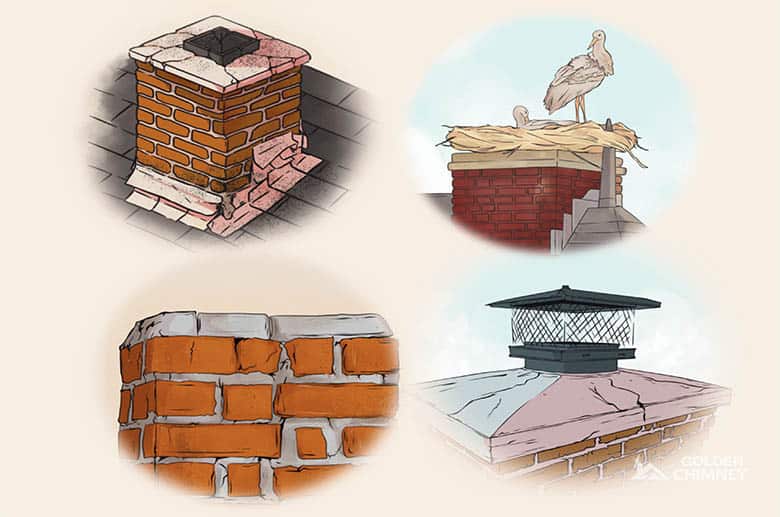
There are many reasons for chimney noise, but some of the most common include:
- Dirty chimneys: One primary cause of chimney noise is a dirty chimney. When creosote and soot build up on the chimney walls, it can create a rumbling noise when the fireplace is in use.
- Birds or animals: If you hear chimney noise during the daytime, birds or other animals may have taken up residence in your chimney. Animals like squirrels, raccoons, and bats will sometimes build nests inside chimneys, which can block the airflow and create chimney noise.
- Structural damage: Any damage to the chimney structure, such as cracks in the bricks or mortar, can cause chimney noise. This is because the damage can allow air to escape, which creates a whooshing sound.
- Poorly installed chimney caps: Chimney caps are essential in keeping debris and animals out of your chimney. If the chimney cap is loose or poorly installed, it can cause chimney noise.
What is that Sound in My Chimney? (And How Can I Stop It?)
Now that you know some reasons for chimney noise let’s look at seven common sounds and what they may indicate.
1. Chimney Banging Noise
If you hear a banging noise coming from your chimney, it’s likely due to an issue with the flue. When the temperature outside fluctuates, the metal components of your chimney expand and contract.
This can cause the chimney flue to lose, resulting in a loud banging noise.
Furthermore, most chimney noise is due to wind blowing over the top of a chimney flue or pot without a chimney cap. The presence of an unstable chimney cap or bird guard can also cause noisy chimneys.
To stop the noise, you’ll need to have a chimney professional inspect and repair your chimney. They’ll advise you on the best chimney cap or bird guard for your situation and ensure it’s installed correctly.
2. Chimney Buzzing Noise
The most common reason for a chimney buzzing noise is bees or insects. You may see insects or bees flying out of the fireplace or notice them crawling up the chimney.
While seeing insects in your chimney may be alarming, it is a prevalent problem. If you have bees in your chimney, the best action is to contact a beekeeper or pest control company to remove them.
Once removed, you can contact a chimney sweep professional to clean the chimney and ensure there are no further problems.
3. Chimney Wind Noise
The third chimney noise you can hear is wind noise. If your chimney is located outside your home, you will likely hear the wind howling or whistling through the chimney.
If you hear this noise, you should check whether the chimney cap is installed correctly. Wind will quickly enter the chimney if the chimney cap is loose or absent, causing the noise.
You can consider installing a chimney cowl to prevent the wind noise issue. Additionally, you can seal any gaps around the chimney with weatherstripping or caulk. If you still hear noise after taking these steps, you may need to have the chimney relined or repaired.
4. Chimney Dripping Noise
A chimney dripping noise is usually caused by water entering the chimney. This can happen for several reasons, such as:
- Damaged chimney flashing
- Cracks in the chimney
- Loose mortar joints
If you hear water dripping inside your chimney, it is crucial to have it repaired as soon as possible. Water can cause severe damage to your chimney and home if left unchecked.
The best way to deal with a chimney dripping noise is to contact a chimney professional. They will be able to identify the source of the problem and make the necessary repairs.
——
Do You Need to Hire Chimney & Fireplace Expert?
Get free quotes from qualified experts near you. No commitment required!
——
5. Vibration Noise in Chimney
Your fireplace and chimney should work as silently as possible. However, you may sometimes hear a vibration noise in your chimney.
A chimney vibrating noise is usually due to a blockage in the flue. This blockage can be caused by soot, bird nests, or other debris.
If you hear this noise, it’s essential to have the chimney cleaned as soon as possible. A chimney sweep will assess the chimney and remove any blockages. They may use a chimney camera to ensure the chimney is clean.
6. Rattling Noise in Chimney
When a rattling sound comes from your chimney, it’s essential to note what’s causing the noise. It’s best to look at a few things like loose fan parts, faulty ductwork sections, and a loose blower door, among others.
If you hear a rattling noise in your chimney, it may be due to one of these issues. It’s essential to have a chimney professional inspect your chimney to diagnose the problem. They will be able to repair or replace any damaged parts.
Ensure you walk the professionals through all the chimney noise issues you’re experiencing so they can give you an accurate diagnosis.
7. Scratching Noise in Chimney
If you hear a scratching noise in your chimney, it’s likely due to an animal. Animals like birds, squirrels, and raccoons often enter chimneys in search of shelter.
While having an animal in your chimney may seem harmless, it can lead to significant problems. Animals can damage the chimney and cause blockages. They can also carry diseases that can be harmful to humans.
If you hear a scratching noise in your chimney, the best action is to contact a chimney sweep or wildlife control company. They will be able to remove the animal and prevent it from returning.
8. Rumbling Noise in Chimney
Finally, the rumbling noise in your chimney may be due to a poorly fitted chimney cowl. A chimney cowl is a cap that sits on top of the pot and helps prevent wind from entering the chimney.
If the chimney cowl is loose or ill-fitting, it can cause the chimney to rumble. This noise is usually only audible when the wind is blowing.
The best way to fix this problem is to have a chimney professional assess the chimney cowl. They will be able to adjust or replace the chimney cowl as needed.
If you hear these chimney noises, you must take action immediately. Ignoring the problem can lead to serious damage to your chimney, loved ones, and home. Contact a chimney professional to have your chimney inspected and repaired.
——
Do You Need to Hire Chimney & Fireplace Expert?
Get free quotes from qualified experts near you. No commitment required!
——
What Should be the Ideal Noise Level of a Fireplace Chimney?
The ideal noise level of a chimney will depend on the type of chimney you have. A masonry chimney should make little to no noise when in use. If you hear any chimney noise, it may be due to a problem with the chimney.
The ideal noise level of a fireplace chimney is 50 decibels or less. On the other hand, a metal chimney will make some noise when in use. This noise is due to the movement of air through the chimney.
How to Reduce Noise from Chimneys
You can reduce noise from your chimney in several ways:
1. Install a Chimney Balloon
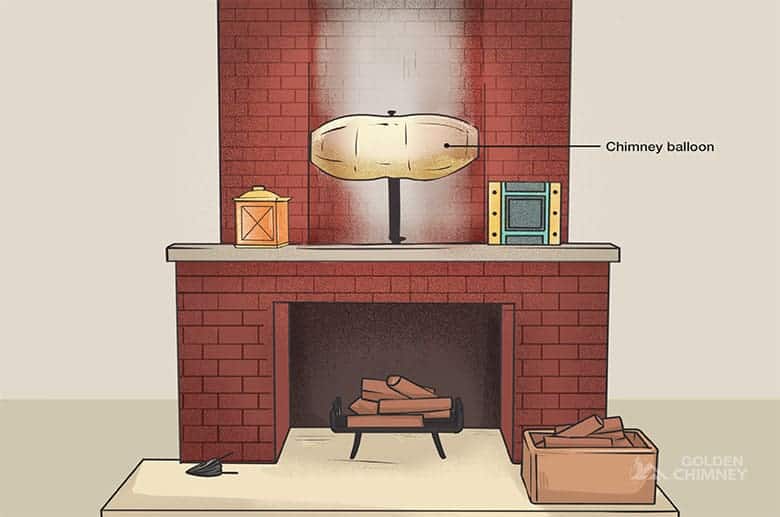
Chimney balloons are inflatable devices that fit inside your chimney. They are made of thick, durable material that blocks out noise. Chimney balloons are a great way to reduce noise from your chimney without affecting the chimney’s function.
They can do this by blocking the flue opening and redirecting noise back down the chimney.
2. Install a Chimney Cowl
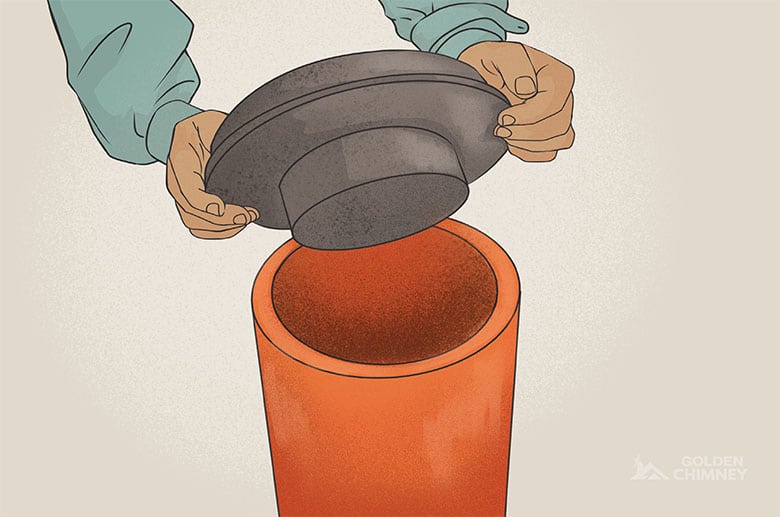
Chimney cowls are devices placed on top of chimneys to prevent wind from entering and causing a draft by deflecting the wind upwards and around the chimney instead of allowing it to go down the chimney.
The draft is prevented, and your fireplace will work more efficiently. Chimney cowls come in various designs, so you can find one that fits your chimney’s specific needs.
3. Use a Chimney Flueblocker
A chimney flue blocker is a device that fits inside your chimney. The flue blocker blocks the air passage by creating a physical barrier between the room and the outside noise, reducing the noise.
Chimney flue blockers come in a variety of sizes and shapes. You can find one that fits your chimney’s specific needs.
4. Check or Install Your Chimney Cap
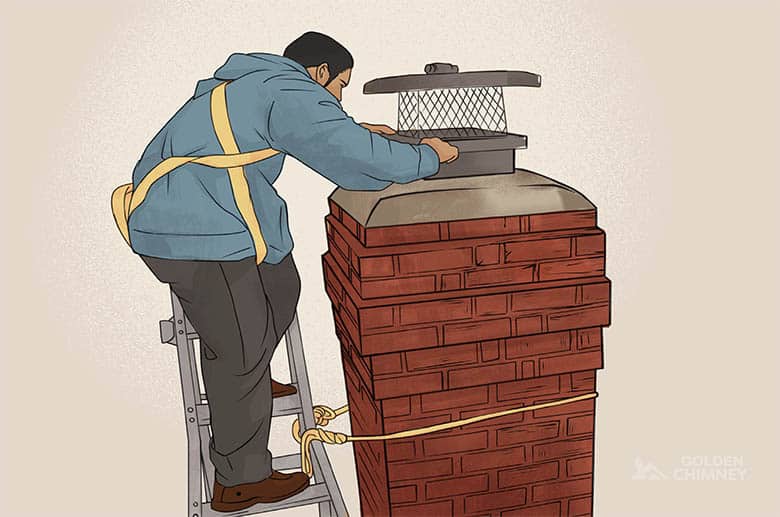
Your chimney cap helps to prevent rain, snow, and animals from entering your chimney. It also helps to reduce noise from your chimney.
If you don’t have a chimney cap, you should consider installing one. If you already have a chimney cap, ensure it is in good condition and properly installed.
5. Close the Damper When You’re Not Using the Fireplace
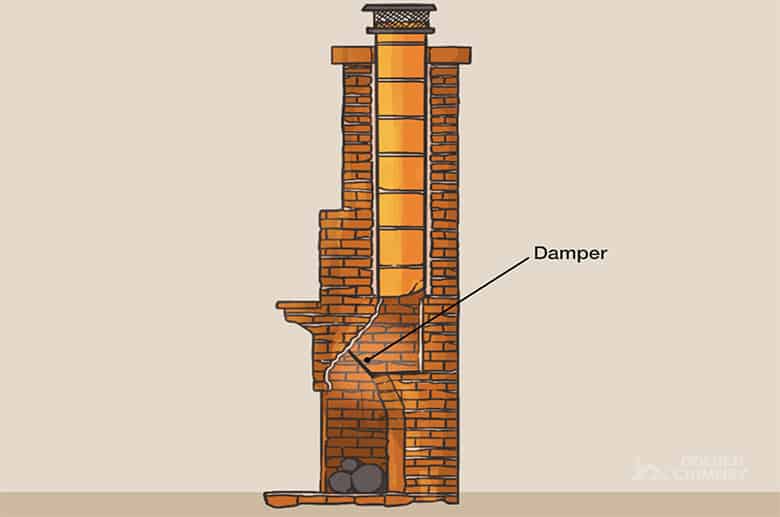
Finally, you can reduce noise from your chimney by closing the damper without using the fireplace. The damper is a door that covers the opening of the chimney.
When the damper is open, it allows noise to enter the chimney. Closing the damper will help to reduce noise from your chimney.
It would be best if you also closed the damper when you’re not using the fireplace to prevent heat from escaping through the chimney.
Conclusion
If you hear chimney noise, you should take action immediately. Ignoring the problem can lead to serious damage to your chimney and home. Contact a chimney professional to have your chimney inspected and repaired.
Following these tips will help keep your chimney in good condition and prevent noise from becoming a problem.

